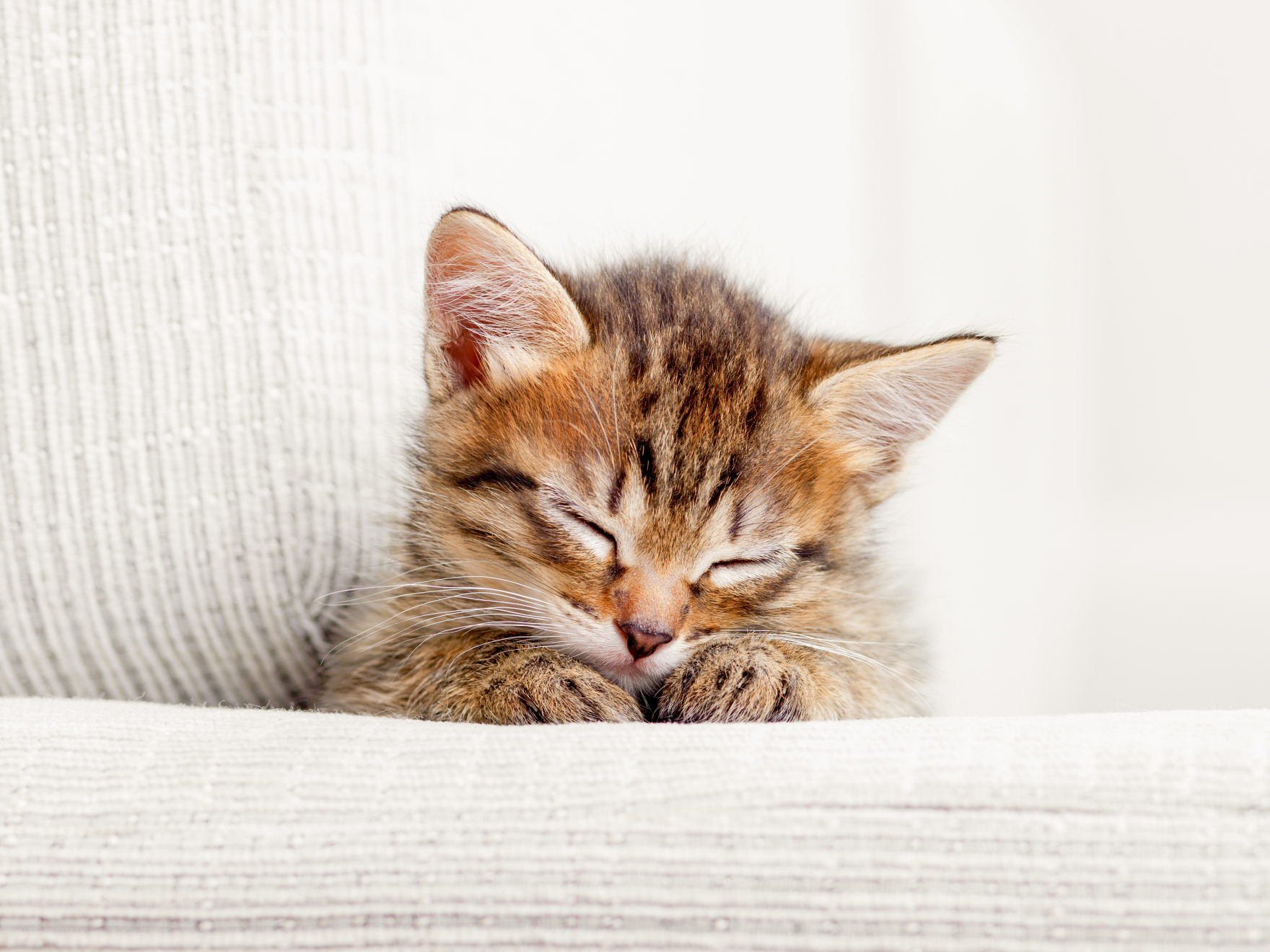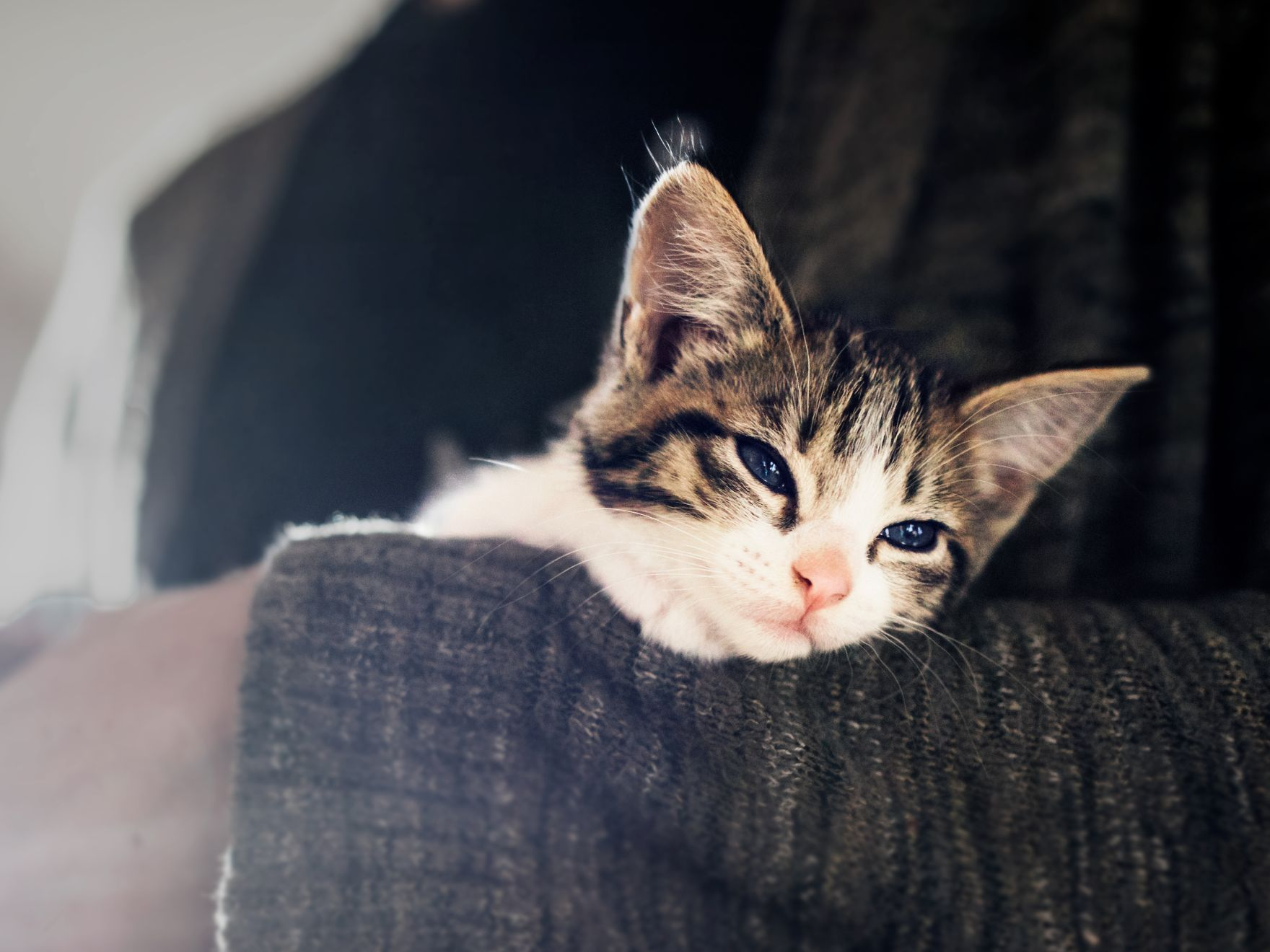New kitten Checklist – Prepare the essentials for your kitten’s arrival
Congratulations on reaching the decision about getting a kitten! It’s a thrilling feeling to know that soon your home will also become theirs, but before they set paws in your house, it’s important to make sure you have what you need to care for them.
There are essential steps to take when you are preparing to get a kitten. Making sure you can tick all the boxes on the kitten checklist is the first thing to do.

Your new kitten checklist:
So, you’re ticking all the boxes? Great! Let’s look at each step more closely, so you can be assured that you are 100% ready before bringing home your new little ball of fur.
1 - Preparing for kitten by proofing your home
Your little furry friend will probably be shy at first, but chances are that they’ll quickly grow into a curious, playful, and agile kitten and no place in your house will be left unexplored! Making sure their new environment is a safe space is the best way to kick-off your pet owning journey.
Key items that need your attention in your house and garden:
1.Fencing and gates
2.Toxic garden plants
3.Hazards
4.Ponds and water features
5.Tools and small objects
6.Dangerous substances
.
1.Fencing and gates
2.Toxic garden plants
3.Hazards
4.Ponds and water features
5.Tools and small objects
6.Dangerous goods
2 - Preparing for kitten by making their new space comfortable and practical
You will need to prepare three main areas for your kitten. They should be separate from each other, ideally in different rooms. As your kitten adjusts to your home, they’ll soon find their favourite spots and you can then move their spaces accordingly, if needed.
• Drinking station and meal area - Kittens need a quiet space to enjoy their meal without worrying about being surprised or disturbed. Choose a spot out of the way with enough room to spread out their bowls, so spillage from the food bowls doesn’t contaminate their water. Cats enjoy drinking at different spots during their day, so putting other sources of fresh water around the house is a good idea.
• Sleeping and resting zone - Kittens need a lot of sleep. It’s important they have a calm space where they can safely rest and sleep, away from high traffic corridors.
• Litter space - Going to do their business can make kittens and cats feel vulnerable. It’s best if you can place their litter in a separate space, which is easily accessible and away from you and others in the house.
3 - Preparing for kitten by getting the right food
Kittens and adult cats are not quite the same, so it’s only logical that they have different needs, and their diet should be fulfilling them accordingly. Kittens need specific food because they grow so fast —you only need to watch them evolve to get proof of that. In just a few weeks, they’ll grow so much they won’t even fit in the palm of your hand. The right food is the best ally when it comes to feeding kittens and supporting their needs during this intense growth period. Digestive health support, cognitive and immune system development, plus their energy intake can all be nurtured and nourished with the perfect adapted kitten diet!
4 - Preparing for kitten by making sure everyone is ready to meet the newbie
Super soft, super fun, super playful... but they come with great responsibilities, and you share those responsibilities with every member of your household. Your role as a kitten owner is crucial for your pet’s wellbeing. It starts even before your new pet’s arrival when you start thinking of getting a cat. Every day you must dedicate some time to help them live their best life, it’s called responsible pet ownership. From making time for playing, covering their needs and giving them the affection, they require, you and your family should be ready to care for them and tackle the challenges to come today and for life. From making time for playing, training, and preparing their meals to covering the expenses related to quality food, vet appointments, and unexpected health or cat sitting bills, you and your family should be ready to tackle the challenges to come today and for life. It’s the price to pay for all the great moments that come with getting a new kitten – and it’s worth it.
5 - Preparing for kitten by finding your vet
From your kitten’s first complete health check to their routine check-ups and vaccination, your vet can help you manage their health as they grow. They’re the best person to guide you in caring for your pet day after day, giving advice when something is wrong, reassuring you when everything seems fine, and being there for life. There are several questions that can help you select the best clinic for your kitten, and if you want to find a vet who is local, you can also use our vet finder to browse your options.
Find a vet
